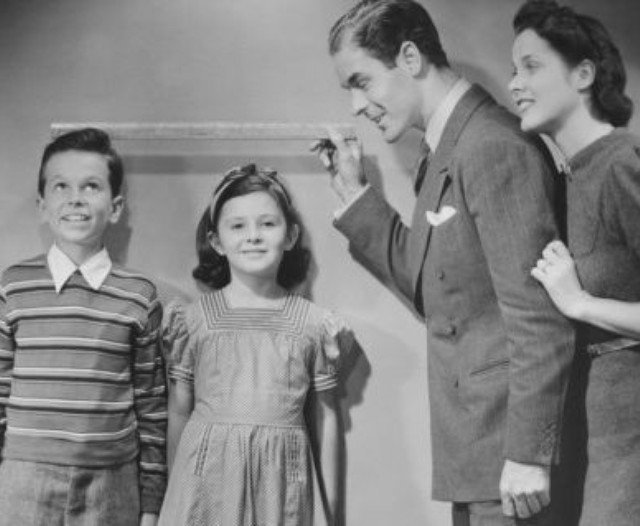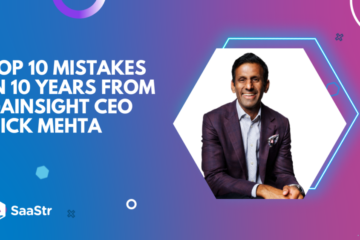
“A great man is always willing to be little.” Ralph Waldo Emerson
If you unquestionably know what you want to do with your life, stop reading this post.
If you’re still here, and you’re like me, you struggle constantly with purpose and meaning. And when pressed for a goal, many of us fumble through a sentence typically involving the word “great” in some capacity. Former Benchmark partner and current WealthFront CEO Andy Rachleff has taken a stab at defining Silicon Valley greatness in PandoDaily editorial post:
Entrepreneurs’ abilities, like those of people in most every profession, follow a bell curve distribution. The vast majority are mediocre, a small percentage are terrible, and a small percentage are truly great…
Most great entrepreneurs have a burning desire to build a great company. They instinctively know they need great people to help them achieve their goal, and the only way to attract those helpers is by building a great company, with all that entails. Creating a culture that makes it fun to come to work plays a very important role. Hard to argue with it, right? I mean obviously “greatness” couldn’t be something that goes to more than a “small percentage” of people, otherwise it wouldn’t be relatively great. And company-building and changing the world, which he talks about in the article, are the Valley’s equivalent of motherhood and apple pie.
So why did this post bug me so much?
Venture greatness
As many have written, venture capital firms, especially those with large funds, depend on a very small number of huge, multi-billion dollar exits for their economics to work out. And the more successful the General Partners in a fund get, the higher the bar moves. As such, Andy’s definition of greatness involves being willing to wait for a “really big outcome” and not settling for a $50 million sale because “it doesn’t change society by building a great company or changing the world.”
He says he’s met a “few dozen great ones” in his long and very successful career. Again, nothing controversial about and of that. In fact, he articulates well how the VC industry thinks about greatness.
Except that it’s just one definition.
Washington DC “greatness”
Washington, DC is clearly a city where people strive for success. (I’m sure you’re thinking of a joke about Congress here). Cynicism about politics aside, hundreds of thousands of people in Washington work hard every day across the Executive Branch, Congress, the Judicial Branch, and the countless federal departments to help our country. Young people aspire to make an impact, and experienced Washingtonians hope to create a legacy.
So have there only been a “few dozen great ones” in DC in the past 30 years? If so, you’d probably have to only consider Presidents, Supreme Court Justices, and some senior Congressmen and -women. Does that mean heads of the CIA who stopped terrorist attacks weren’t “great”? How about a Surgeon General who made a huge impact on a social health issue like smoking? Or a congresswoman who was the deciding vote in a key piece of legislation?
Is there really just one small list of truly great people in Washington? And who gets to decide?
Hollywood “greatness”
Hollywood is another very competitive ecosystem.
Obviously we have public recognitions for Hollywood greatness like the Academy Award. Again, putting aside skepticism on Oscar voting, according to Wikipedia, there are currently 24 active Academy Awards. Assuming some flux (awards added or removed, or multiple awardees per award, or multiple awards per awardee), that means 24 time 30 equaling 720 or so awardees in the past 30 years.
Maybe some awards are more important than others. And some awardees are just legendary (Spielberg, Hanks, Deniro, Pacino, etc.). But where do you put the Cohen Brothers? Chevy Chase? Christopher Nolan? Leonardo Dicaprio? Robert Duvall? I bet if you think hard, you could come up with a hundred people in Hollywood that you’d consider “great” in some way in the last three decades. And I bet each of our lists would vary.
Silicon Valley “greatness”
If greatness in Silicon Valley is defined by a few dozen companies with big outcomes and that didn’t sell out early, as Andy suggests, where does that leave:
- VMware: VMware is easily one of the most important startups in enterprise IT in the past thirty years. It transformed the way companies manage infrastructure and enabled new business models that were never before possible. VMware has become the modern operating system for the data center. VMware invented the hypervisor that became the key enabling technology for cloud computing. Yet VMware sold out way early (for $625 million to EMC in 2004). The current market cap for VMware (which EMC subsequently spun out) is nearly $40 billion. Was VMware great?
- Crescendo: In 1993, Cisco bought Crescendo for about $90 million. That eventually turned into the multi-billion dollar Catalyst product line at Cisco. A huge number of the Internet packets that you’ve ever sent or received to browse the Web or use applications at some point went through a Catalyst switch. Was Crescendo great?
- Paypal: Love them or hate them, Paypal is the current payment infrastructure for the Internet. And it makes a ton of money for eBay. And because of that, many people think Paypal sold too early. Were they great?
- Digg: Let’s get more controversial. When it was on the cover of Business Week, many thought Digg was great. Now many would be eager to declare it a failure. Founder Kevin Rose has talked about this dynamic. Many were eager to analyze with 20/20 hindsight. Yet some employees loved the experience. And GigaOm head Om Malik passionately articulated how Digg made a huge impact to media and, in a small way, changed the world. Was Digg great?
If we thought hard, we could come up with dozen’s of mind-twisting examples. And more importantly, each of us would have companies — that we worked at, worked with or bought from — that were great for us, even if no one else remembers them.
Your greatness
Striving to create a great company and change the world is awesome.
But my point is that defining greatness across a large number of people in the abstract is tough. While venture capitalists are sometimes very intelligent, experienced, and important in the Silicon Valley ecosystem, that doesn’t mean their definition of greatness is the only one. And it doesn’t mean their list of a few dozen “great” entrepreneurs are the only ones that were great to anyone.
At the end of the day, greatness is a personal concept and I think much of the frustration in life is when we chase others’ definition of success versus creating our own.
Then again, maybe this is just a letter I’m writing to myself.



